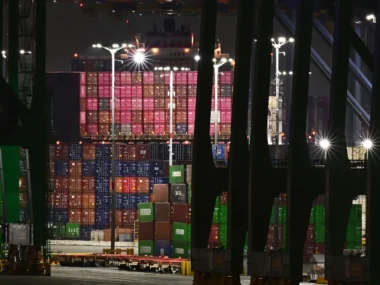According to insurance marketplace Lloyd’s of London, a “plausible increase” in extreme weather events connected to climate change that result in crop failures and food and water shortages could result in global economic losses of $5 trillion.
The research was conducted by Lloyd’s and the Cambridge Centre for Risk Studies. Lloyd’s underlined that its “systemic risk scenario,” which simulates the effects of extreme weather on the world economy, was purely speculative. However, it claimed that the research will enhance how well industry and policymakers understood how vulnerable they were to serious dangers like catastrophic weather.
The predicted worldwide economic losses were $711 billion when the estimated $5 trillion in losses over a five-year period were adjusted for the likelihood that those catastrophic weather events would occur, according to Lloyd’s.
The executive director of Systemic Risks at the Cambridge Centre for Risk Studies, Trevor Maynard, stated that “the global economy is becoming more complex and increasingly vulnerable to systemic threats.”
He continued by saying that the study would “help businesses and policymakers explore the potential impacts of these scenarios.”
By calculating the effect of food and water shocks on the global gross domestic product over a five-year period, Lloyd’s projected the global economic losses caused by catastrophic weather occurrences.
The weighted average loss throughout the five-year period for the three severity scenarios it modeled—major, severe, and extreme—was $5 trillion, ranging from $3 trillion in the mildest case to $17.6 trillion in the most severe.
The extreme weather events centered in Greater China, according to Lloyd’s estimate, will cause the largest damages, totaling $4.6 trillion.
If the catastrophic weather occurrences were to be concentrated in the Caribbean, Lloyd’s predicted that the region would lose 19% of its GDP over the course of five years.











